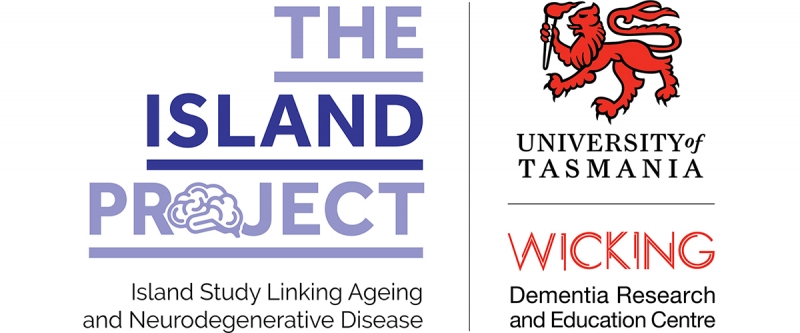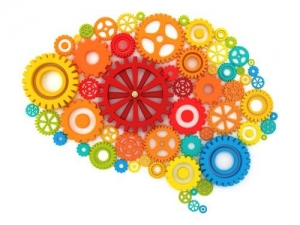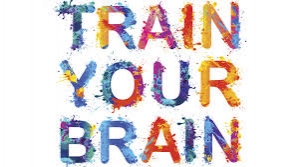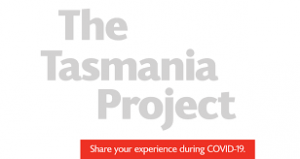| ISLAND Newsletter - MAY 2020 |
View in browser | Print |
 | | We Want To Hear From You! | 
Welcome to this edition of the ISLAND Project newsletter. My name is Helen Douglas and I’m the Project Manager for the ISLAND Project. I’m lucky to be working with such a great team in ISLAND – and we’ve been delighted with the recent launch of ISLAND Home, the feedback we’ve received about our newsletters and our interaction with you all over social media. We now have a strong online platform to support our research program and broader communications to all our participants. We’re looking forward to being in much more regular contact with you all in 2020 and beyond. You will already have received our first three newsletters and I hope you enjoyed them and found them useful. If you have missed any or wish to look at them again, you will find them in your ISLAND Home portal. Our newsletters will include information about modifiable risk factors for dementia as well as resources that promote wellness and positivity as we journey through our current uncertain way of life together. We want our newsletters to be useful and practical. We want to give you information and resources that help you make, and maintain, positive changes relating to your personal risk of dementia. With this in mind, we’d like to invite you to let us know what risk reduction and wellness information you would like us to include in future editions of our newsletter or on our social media channels. Please send your ideas to island@dementia.utas.edu.au. We’d love to hear from you, and we’ll do our best to produce the material you would like to see. We very much hope that the ISLAND Project will bring about a reduction in both the risk and diagnoses of dementia across Tasmania over the longer term. However, the ISLAND Project will only be a success if our community gets behind it and participates in the activities we offer. If you haven't yet logged into ISLAND Home please check it out. Instructions were emailed to you recently and the link to the website is below. Email the ISLAND team if you are unsure how to log in and we will help you out. ISLAND Home portal
Thank you for your involvement to date – we do appreciate your time and the information you provide to us. I enjoyed meeting many of you at community events last year and earlier this year and look forward to meeting many more of you in the future.
| | Risk Factor - EDUCATION | 
Why Is Level of Educational Attainment a Risk Factor for Developing Dementia?
Education is one of the most significant modifiable risk factors for dementia. Researchers believe that the brain is affected by activity in a similar way to a muscle, whereby regular mental activity keeps the brain healthy and strong. Education undertaken in early life is particularly important for brain development and function, and relates strongly to future risk of dementia. Research studies regularly find that those who leave school at an earlier age have a higher risk of developing Alzheimer's disease. "Cognitive reserve" is one of the leading theories that explains why education and other mentally stimulating activities may help protect against dementia. Cognitive reserve relates to the idea that we can develop a greater capacity to stave off cognitive impairment in the face of diseases or conditions that affect brain function, such as Alzheimer's Disease. Research indicates that an individual's cognitive reserve can be influenced by the level, type, and duration of engagement in cognitively stimulating activities. The most commonly used estimates of cognitive reserve include educational and occupational attainment, engagement in cognitively stimulating leisure activities, complex social interactions, and intelligence.
More and more evidence, particularly clinical trials evidence, is showing that starting new challenging activities for your mind, such as brain training or complex leisure activities, is linked to better brain health and better cognitive outcomes. So, it's never too late to increase your cognitive activity and challenging your brain by learning something new is a great way to do that.
| | Tasmanian Healthy Brain Project | 
Later-life education may protect against dementia
Research shows that early-life education is important for reducing your risk of dementia. Finishing primary, secondary and higher education and engaging in intellectually stimulating activity seems to be associated with resilience to brain ageing. So, does this apply to later-life education as well? A Wicking initiative, The Tasmanian Healthy Brain Project, hopes to find out. In 2010, the Tasmanian Healthy Brain Project (THBP) was established to investigate whether this theory holds true for education undertaken later in life. Researchers from Wicking offered 500 Tasmanians aged 50-79 years the opportunity to enrol in university-level education at UTAS. All of the participants were followed up every year, and did extensive tests of their cognition, lifestyle, social, physical, well-being and medical status. After 10 years we compared people who undertook university-level study through the THBP with people who did not and found that later-life education had indeed improved cognitive function. Participants in the experimental group showed relatively greater preservation or improvement in general cognitive function and cognitive reserve, with participant's verbal memory and language processing ability showing the greatest improvement. In this world first study, we have found encouraging evidence that later-life education may enhance an individual’s cognitive reserve and therefore reduce their risk of dementia.
We know that early-life education can reduce your risk of dementia, and now there is evidence that participating in education later in life may also help build cognitive resilience to brain ageing. This means that engaging in later-life education could provide an additional level of protection against your dementia risk down the track. Based on this research, we recommend that wherever possible, you say yes to educational activities, yes to intellectually stimulating activities and look out for any opportunities to take part in later-life education. Keep an eye out on your ISLAND Home Portal for an exciting upcoming opportunity!
| | Keep Your Brain Active | |
An enriched and active cognitive lifestyle, throughout your lifespan, may reduce your risk of developing dementia. An active cognitive lifestyle can be achieved by regularly challenging your mind and learning new things, but it's also important to enjoy whatever activity you chose to do! Enjoying a cognitively stimulating activity will lead to a sustained effort, resulting in longer term benefits. What you enjoy will be different to someone else, so we cannot be too prescriptive when it comes to making suggestions for you to try. If any of the below interests you, give it a go, or undertake an activity new to you to challenge your brain.
|
 |  |  |
Learn a new language | Brain training programs | Visit international museums |
A great example of an activity that involves prolonged engagement in a cognitively challenging task, is learning a new language. When you learn a new language you are taking in new vocabulary, learning how to structure your sentences properly, and it can take quite a long time. It can be quite a difficult activity, but it is also achievable, which is important. This means your brain will be challenged over a long period of time. As a result of this activity, your brain has to change, restructure and reorganise itself and what researchers think increase in cognitive reserve looks like in a brain. | Researchers are becoming interested in brain training, or using cognitive exercises on the computer, as a formalised and encapsulated way of stimulating a cognitive lifestyle. So thinking of the brain like a muscle, brain training is like going to the gym and doing exercises for the brain! With so many brain training programs available, it may be difficult to find a reputable program, based on scientific evidence and few are free. Edith Cowan University reviewed a number of programs based on the scientific evidence behind them (link below), which may help you make a decision before you leap in and pay for a program. Some Brain Training Programs Are Based In Evidence | Have you ever wanted to visit the Musee d'Orsay in Paris, or the Guggenheim in New York? Google's Art and Culture collection allows you to view masterpieces up close from your lounge room! Learning about art and culture can be a great way to keep cognitively active. Research suggests that engaging with cultural assets such as galleries, museums, theatres, concerts and opera houses could play a role in supporting cognitive function in older adults. Many of these activities are now online for you to explore and enjoy from the comfort of your own home, without the cost or jet lag!
Google Art & Culture |
|
| COVID-19 - Research - Support |
 |  |
Share your experiences during COVID-19 | National COVID-19 Older Persons Information Hotline |
The University of Tasmania's Institute for Social Change invites you to express your interest in participating in a study that will give you a voice as you share your experiences during the COVID-19 pandemic. Participation involves online surveys and/or interviews with the research team. The information gathered will be summarised and published weekly as a resource for those making critical decisions in response to the pandemic, including through our state's recovery. Click on the link below for more information and to register your interest. If you are unable to complete the online registration form, please call (03) 6226 7542 and leave your name and number. A member of the research team will be in touch to register you.
The Tasmania Project | The new National COVID-19 Older Persons Information Hotline will help older Australians get the critical information they need to stay healthy and safe during the pandemic. The hotline provides an access one-stop source for:
- Personal Support
- Questions
- Up-to-date guidelines
Older people, carers, people living with dementia and their families are encouraged to call the hotline to speak to friendly, specially trained staff from a senior’s advocacy organisation.
Call: 1800 171 866 The hotline is available Monday through to Friday and between 8:30am and 5:00pm. The Federal Government has partnered with National Seniors, Council of the Ageing, Dementia Australia and Older Persons Advocacy Network to get the hotline up and running. |
|
| ISLAND Project Partners |  |
|
Stay Connected:
|


|
islandproject.utas.edu.au
|
| |
|
|